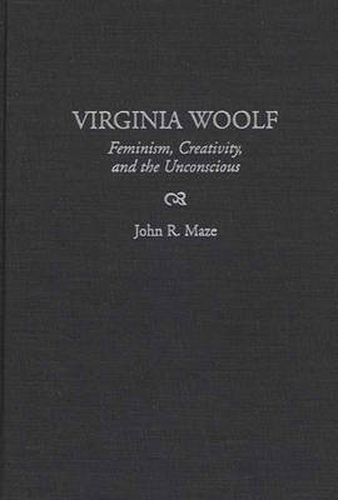Readings Newsletter
Become a Readings Member to make your shopping experience even easier.
Sign in or sign up for free!
You’re not far away from qualifying for FREE standard shipping within Australia
You’ve qualified for FREE standard shipping within Australia
The cart is loading…






John R. Maze presents a penetrating psychoanalytic reading of Virginia Woolf’s novels from first to last. Underlying their elegant, imaginative, mysterious texture there is revealed a network of sibling rivalry, incestuous attraction and exploitation, sexual repulsion, bizarre fantasies, anger and fatal despair. Woolf’s feminism and pacifism, based on her conscious insight into an authoritarian society, were given passionate conviction by her resentment and irrational guilt over her half-brother’s sexual aggression against her as a vulnerable girl. This found its place in her repressed animosity against her idealized mother, who she blamed not only for failing to protect her, but also for trying to impose the Victorian female sexist orthodoxy. Deeper still was the childhood conviction that her mother was complicit in the fantasied genital injuries - exacerbated later, she felt, by the males in her life - which prevented her from having children, as her envied sister had. Maze’s approach not only reveals the intimate processes of Woolf’s imagination, but yields a deeper and richer reading of her texts. An important study for all students and scholars of British 20th-century literature, feminist literary criticism, and critical theory in general.
$9.00 standard shipping within Australia
FREE standard shipping within Australia for orders over $100.00
Express & International shipping calculated at checkout
John R. Maze presents a penetrating psychoanalytic reading of Virginia Woolf’s novels from first to last. Underlying their elegant, imaginative, mysterious texture there is revealed a network of sibling rivalry, incestuous attraction and exploitation, sexual repulsion, bizarre fantasies, anger and fatal despair. Woolf’s feminism and pacifism, based on her conscious insight into an authoritarian society, were given passionate conviction by her resentment and irrational guilt over her half-brother’s sexual aggression against her as a vulnerable girl. This found its place in her repressed animosity against her idealized mother, who she blamed not only for failing to protect her, but also for trying to impose the Victorian female sexist orthodoxy. Deeper still was the childhood conviction that her mother was complicit in the fantasied genital injuries - exacerbated later, she felt, by the males in her life - which prevented her from having children, as her envied sister had. Maze’s approach not only reveals the intimate processes of Woolf’s imagination, but yields a deeper and richer reading of her texts. An important study for all students and scholars of British 20th-century literature, feminist literary criticism, and critical theory in general.